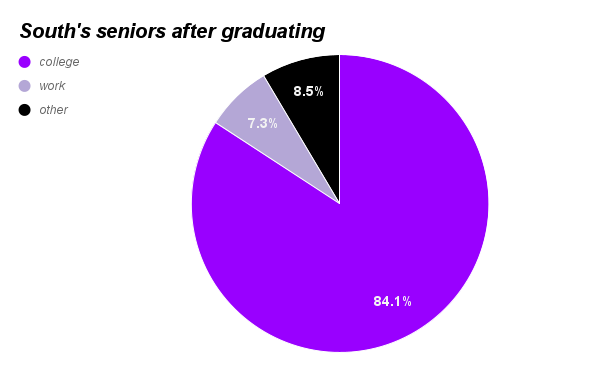In 2019, if someone ordered furniture from Wayfair, would they have found an immigrant child inside? Of course not, that’s ludacris. The original story is that Wayfair was selling furniture to a housing center for migrant children, which is not the same thing. But misinformation spreads quickly, and sometimes people believe it leading to crazy rumors that get blown out of proportion.
With every election comes controversy and skepticism. As the 2024 election rounds the corner, political strategies are turning into political fraudulence. It’s important to be weary of the information that goes around. In a country where propaganda is so dense, it is especially easy to twist the truth and have millions of people believe it. But every lie and deceit has consequences, and can negatively affect people who don’t deserve it.
In the presidential debate this September, former president Donald Trump claimed that the Haitian immigrants in Springfield, Ohio, were “eating the pets of the people that live there.” This statement is false, but sometimes even the falsest of statements can seem believable based on who’s telling you what.
This statement got entangled with a previous video of a Springfield resident claiming that the immigrants in Springfield were killing ducks from the local parks for food. This has since been dismissed as false, but the combination of both crooked claims have misled conservative voters to thinking that the immigrants in Springfield are really stealing and eating the pets.
But the spread of misinformation always has consequences. Since they believe it as true, many Republican supporters have sent hateful messages and threats to the immigrants in Springfield.
Jamie McGregor, who owns a company in Springfield that is mainly staffed by Haitian immigrants, spoke out to defend his employees. “They come to work every day,” McGregor stated, “[t]hey don’t cause drama, and they’re on time.”
Since his statement, McGregor and his family have received an abundance of hateful messages, and even death threats. McGregor had to take his family to safety training, and purchase a firearm for their safety. They were even told by the FBI to vary their routes around town so they were less detectable. His company has had to go on lockdown and increase security.
Another huge instance where spread of misinformation caused harm was the January 6th attack on the U.S. Capitol. The 2020 election was a very heated and controversial election that caused many rumors to scatter about. After voting ended, and it was announced that Joe Biden was to be president, Trump and his supporters spewed rumors that the polls were rigged and that the election was “stolen from him.”
Trump’s supporters, influenced by the misinformation distributed by Trump and throughout the media, decided they were going to do something about it. This led to the January 6th storming of the capitol in what they believed was an attempt to “save America”. This riot led to the death of 6 people and left many Americans in fear and alarm.
With this current era of social media, and people being glued to their phones, everyone is subject to the information that floats around. From Tik Tok to Twitter, information spreads fast, but not all of it is true. People need to be wary of what we believe and how we choose to believe it. There are always people affected and it’s important not to blow things out of proportion or ruin people’s lives. With the election this Tuesday, November 5th, pay special attention to the information you consume, make sure to check the credibility of it before spreading it!
Michael Cauffield’s Four Moves and a Habit offers advice on how to make sure you are absorbing accurate information:
- Check for previous work: You can use fact checker websites such as Snopes or Factchecker.org to make sure your information is credible.
- Go upstream to the source: It is important to find the original source for the information so you aren’t getting a diluted and tangled version.
- Read laterally: Even after fact checking and finding the original source, it may be helpful to crosscheck with other trusted sources.
- Circle back: If you don’t find any credible sources or just end up being more confused, restart the process with other search strategies.




